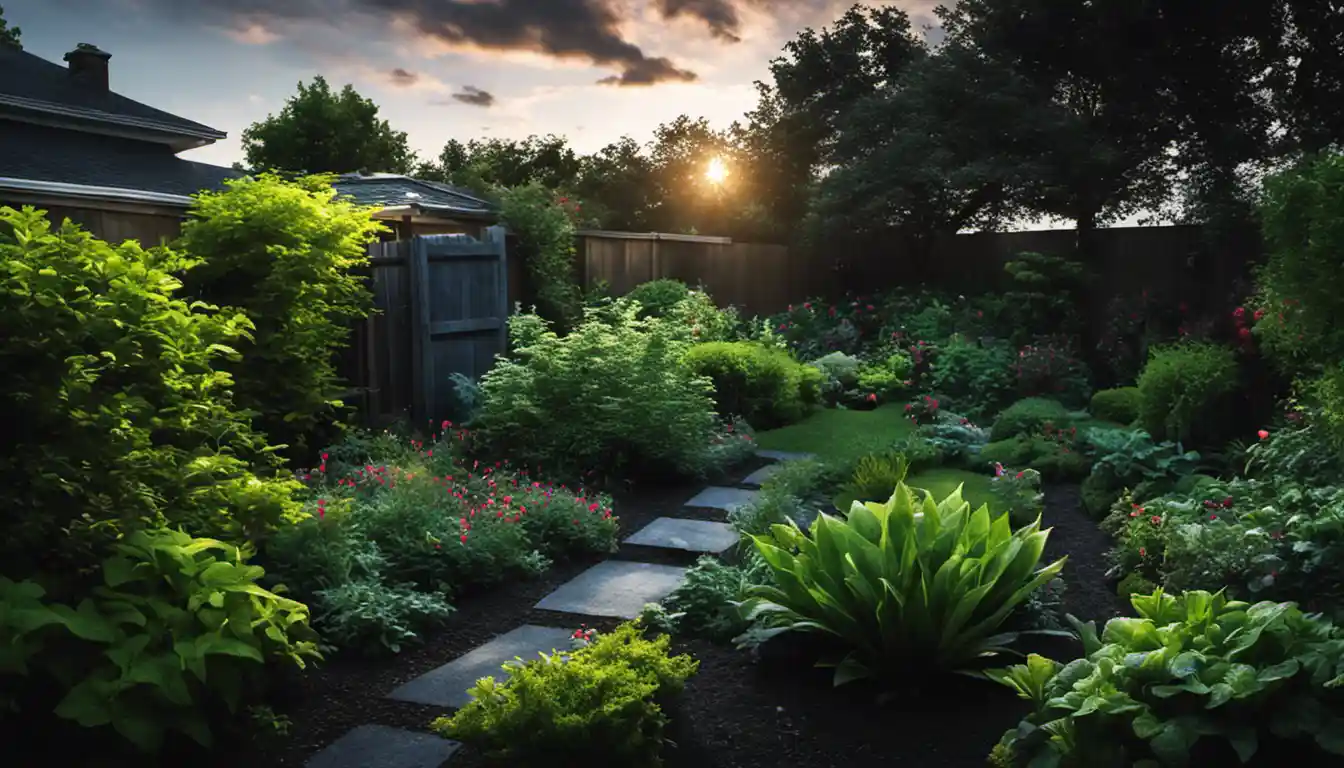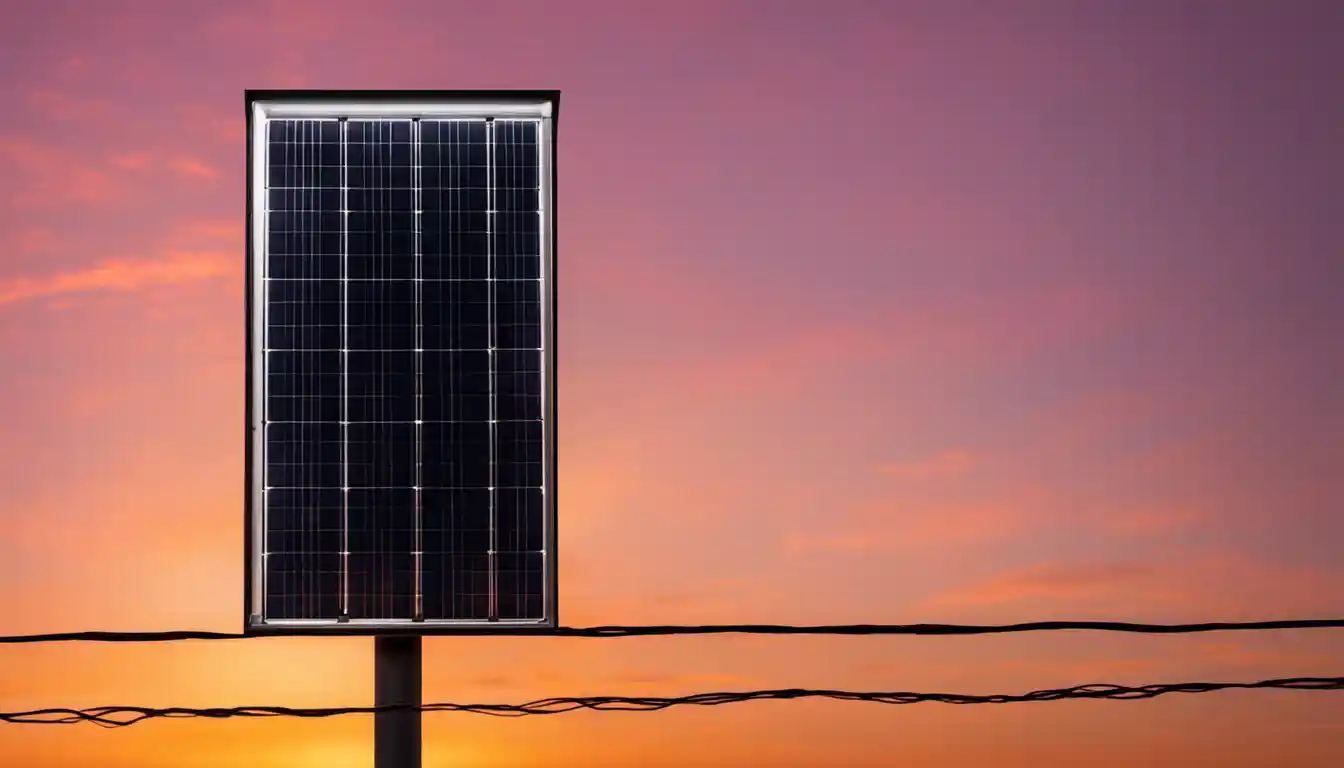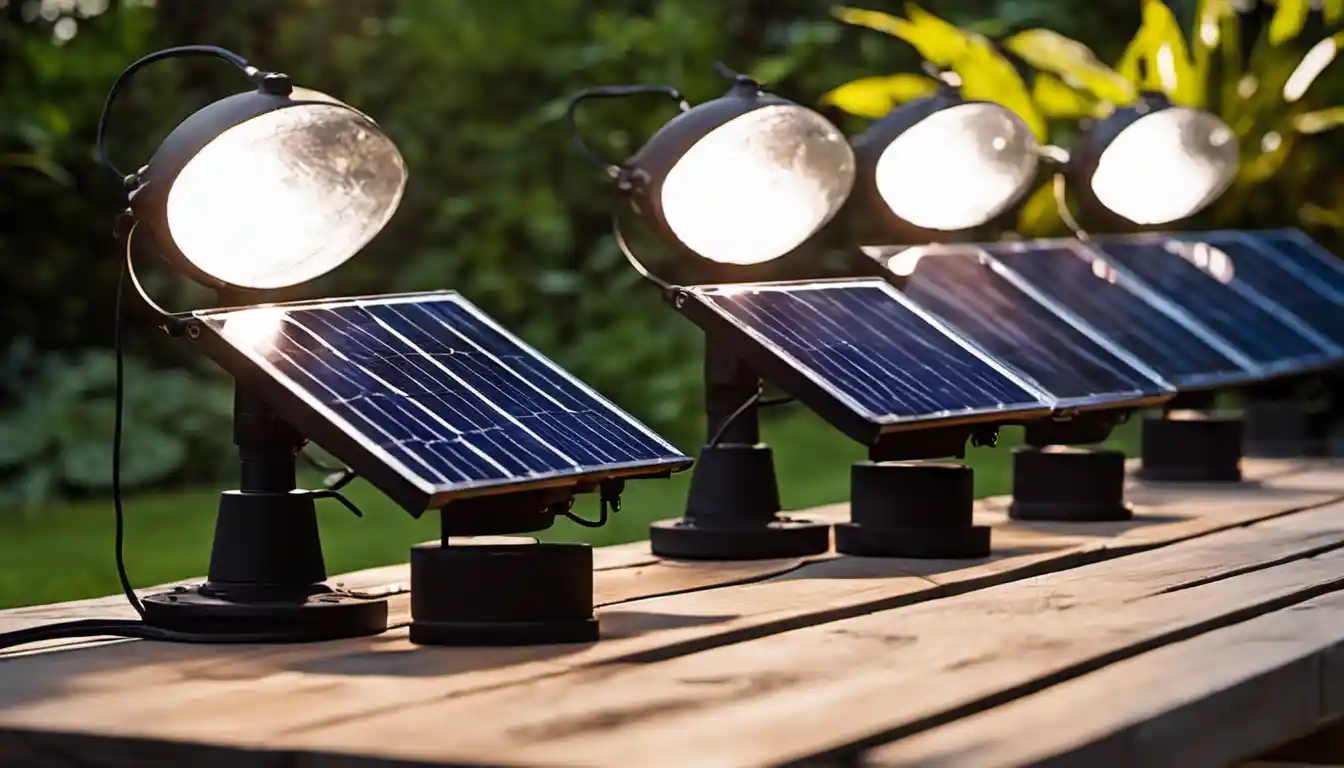Why Solar Lights Stop Working
Solar lights can stop working due to a few reasons: the most common one is that the solar panel gets dirty and can’t absorb sunlight efficiently, resulting in weaker battery charging. Additionally, issues could also arise due to the battery’s lifespan ending or the light sensor malfunctioning.
Continuing on the journey of understanding why solar lights stop working, other factors like water buildup in the solar panels or improperly positioned solar panels can also contribute to the dimming or complete failure of your lovely, energy-efficient garden lights. Another less-known fact is that when solar lights are too close to other light sources, it can trick them into thinking it’s still daytime and hence, they stay switched off.
Breaking Down the Reasons Behind Solar Light Failure
The big question, ‘why is my solar light not working,’ bothers many of us. We’ve all been there. You’ve positioned your solar lights carefully, and everything’s looking perfect, except the lights just won’t turn on. Let’s explore why that might happen a little deeper.
Role of Solar Panel in Light Operation
Figuratively speaking, the solar panel is like the heart of your solar light. As it absorbs sunlight throughout the day, it converts solar energy into electricity to charge the battery. So, if the solar panel is compromised, your solar light will not turn on.
Impact of Insufficient Sunlight on Solar Light Performance

Naturally, no sun equals no solar lights. Insufficient sunlight leads to weakly charged batteries, making the solar light performance drop significantly. Solar lights require an average of 8 hours of direct sunlight for adequate charging, which then ensures an all-night operation. When that’s not possible, say during seasons with shorter days, your solar lights’ performance might be affected.
Significance of Solar Panel Cleanliness
Imagine pouring a cup of coffee through a filter covered in yesterday’s coffee grounds; the new coffee just doesn’t taste right. This is precisely why cleanliness matters. A dirty panel obstructs the sun’s rays from reaching the solar cells, significantly decreasing their efficiency. Regularly cleaning off dust and debris will ensure the solar panels function at their optimum level.
Importance of Correct Solar Panel Positioning
Just like a sunflower, your solar panels need to face the sun to perform their best. In the northern hemisphere, the solar panel should face south, and in the southern hemisphere, it should face north. The position ensures they get maximum sunlight, which is crucial for effective charging.
Limitations of Rechargeable Battery Lifespan
Batteries don’t last forever and need to be replaced every 1-2 years, even if they are rechargeable. A battery’s lifespan generally depends on the frequency of use, but using the same set of batteries beyond their lifespan is a surefire way to dim or completely darken your solar lights.
Functionality of Light Sensors in Solar Lights

A light sensor in solar lights plays a vital role in turning the light on and off. During the day, the sensor “tells” the light to switch off to conserve energy, and at dusk, it “signals” the light to turn on. When the sensor is faulty, the light may fail to turn on, giving the impression that the solar light isn’t working.
Implications of Water Buildup for Solar Panel Function
Water and electricity: a mixture as bad as oil and water. If water somehow seeps into your solar light, it could cause shorts and eventually a complete breakdown. While most solar lights are designed to be weather-resistant, sometimes, water buildup is still unavoidable.
Effects of Proximity to Other Light Sources on Solar Light Efficiency
Light pollution can seriously affect the effectiveness of solar lights. The detector might confuse artificial light for daylight, causing them to switch off prematurely or not switch on at all. This confusion is why properly positioning your solar lights away from other light sources is as important as having them facing the sun.
Regular Testing and Troubleshooting of Solar Lights

Regular testing and troubleshooting can nip the bud of the problem that is causing your solar lights to stop working. With all the possible issues that could occur, the question isn’t ‘why does my solar light stop working,’ but ‘how can I fix my solar light?’
You may find it useful to check out our detailed guide on how to fix solar lights to fully understand the steps to troubleshoot and revitalize your lights.
Fixing Solar Light Problems
Regular maintenance is the key to long-lasting and well-functioning solar lights. This involves positioning solar lights for ample solar exposure, changing the batteries on time, maintaining the sensors and the dominant part – cleaning the solar panels periodically. And remember, always ensure your solar lights are dry and placed at a safe distance from other light sources.
When to Contact the Retailer for Solar Light Issues
Even after troubleshooting and maintenance, if your solar light is still giving you trouble, it might be time to get professional help. If the product is under warranty, reach out to the retailer for a replacement or free repair.
Concluding Thoughts on Solar Light Failures
Solar light failure can be a nuisance that distracts from the peaceful ambiance of your garden or patio at night. However, understanding the common reasons for such failures is half the battle won. The rest is just a matter of routine checks and maintenance to keep your solar lights shining bright and strong.
Make solar lights the reliable, ever-shining stars of your garden or patio, and remember – when in doubt about ‘why is my solar light not working,’ revisit this comprehensive guide. And soon, you’ll be an expert troubleshooter yourselves, saving both time and money. Keep shining!



